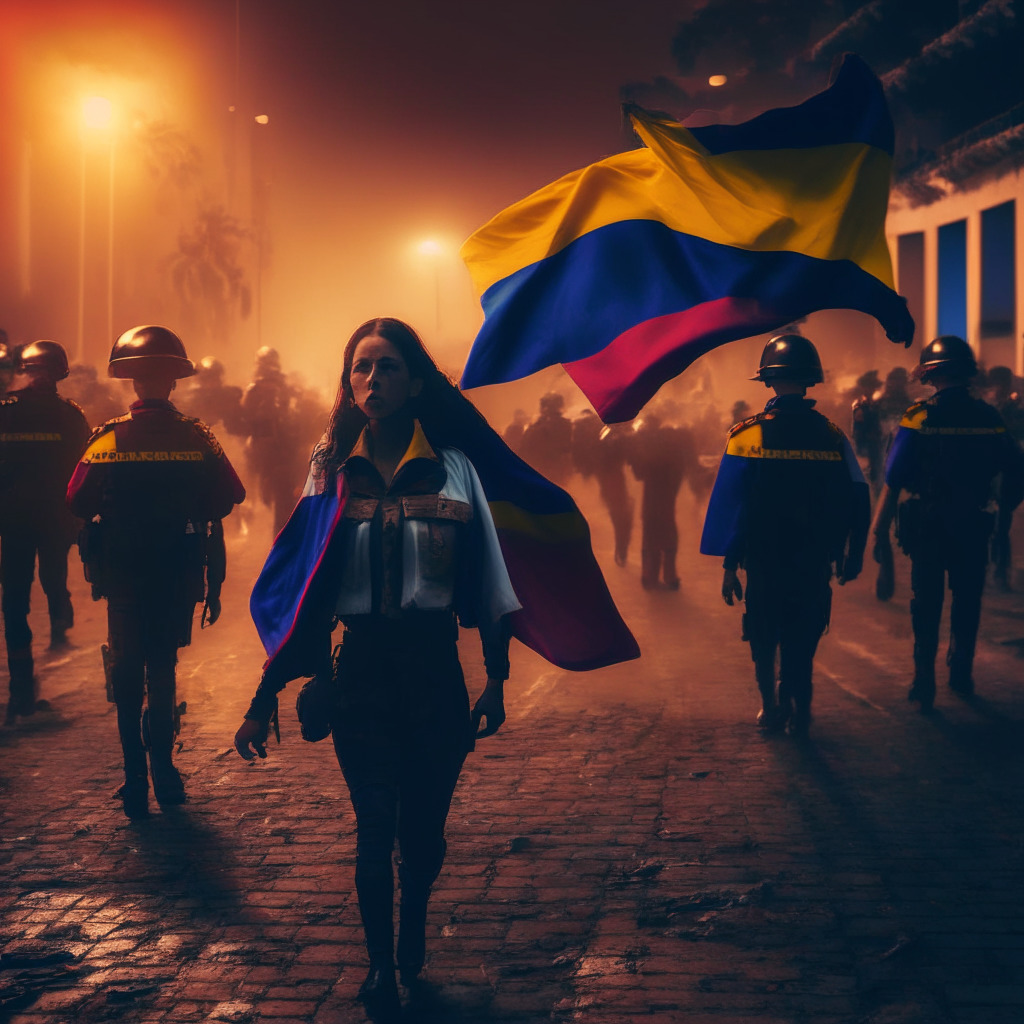In an attempt to publicize police brutality in Colombia during national protests in 2021, human rights advocacy group Amnesty International took an unconventional approach by utilizing artificial intelligence (AI) to generate images for its campaign. However, this move sparked a wave of criticism and debate regarding the ethical implications of using AI-generated imagery in sensitive contexts.
One particular image garnered significant attention, featuring a woman being dragged away by police during the protests. Upon closer examination, however, discrepancies such as uncanny-looking faces, outdated police uniforms, and a protester wrapped in an incorrect Colombian flag cast doubt on the image’s authenticity. To address these concerns, Amnesty International included a disclaimer at the bottom of each image, stating they were produced by an AI.
The organization explained that the decision to use AI-generated content aimed to protect protesters from potential state retribution. However, following mounting criticism, Amnesty International removed the images and refocused on the core message of supporting victims and advocating for justice in Colombia, according to Erika Guevara Rosas, the director for Americas at Amnesty.
Critics, including photojournalists, argue that the use of AI-generated images in such a highly polarized era of fake news is detrimental, as it undermines trust in the media by fueling suspicion and fear of misinformation. Media scholar Roland Meyer echoed these sentiments, calling the deleted images “propaganda” that “reproduces and reinforces visual stereotypes almost by default.”
The use of AI-generated imagery is becoming increasingly widespread across industries, including politics. Late last month, HustleGPT founder Dave Craige highlighted the US Republican Party’s use of AI-generated images in its campaign ads, depicting potential future scenarios to sway opinions.
While the debate surrounding the ethical implications of AI-generated content and its potential to reinforce stereotypes and manipulate perceptions continues, it is essential to consider how these digital tools may be best utilized to deliver accurate information and maintain the integrity of media coverage.
In conclusion, the approach taken by Amnesty International in using AI-generated images to raise awareness of human rights issues may have backfired, as critics argue it only weakens the credibility of the campaign and distracts from its core message. As AI applications become increasingly prevalent, striking the right balance between harnessing their potential and adhering to ethical considerations will be crucial for maintaining trust in media and fostering positive societal progress.
Source: Cointelegraph




